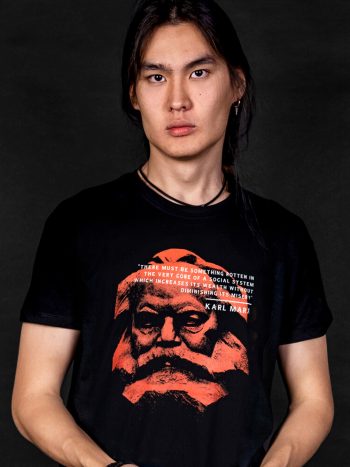Class warfare, a term that has its roots in the late 19th and early 20th centuries, refers to the socio-economic conflict between different classes in society. This article explores the definition of class warfare, provides a historic context for its emergence, examines its evolution in the 20th century, discusses current trends in the 21st century, and offers strategies for activists seeking to fight for a more equal society.
Historic Context

Class warfare emerged as a concept during periods of profound socio-economic inequality and labor struggles in the late 19th and early 20th centuries. Rapid industrialisation and the rise of capitalism resulted in stark disparities between the working class and the wealthy elite. This fuelled tensions and gave rise to labour movements, such as the fight for workers’ rights and fair wages. The struggle for equality and economic justice became central to class warfare discourse.
The 19th Century
The 19th century laid the foundation for the emergence of class warfare and the development of Marxist thought. The Industrial Revolution brought about significant changes in society, as agrarian economies transitioned into industrialised nations. This shift led to the rise of the working class, who found themselves subjected to harsh working conditions, long hours, and meagre wages.

In response to the growing disparities between the working class and the bourgeoisie, Karl Marx and Friedrich Engels developed the theory of Marxism. Their seminal work, “The Communist Manifesto,” published in 1848, presented a critical analysis of capitalism and called for the proletariat to rise against the bourgeoisie in a revolutionary struggle.
Marxism provided a framework for understanding class relations, arguing that the capitalist mode of production inherently perpetuates class divisions and exploitation. It advocated for the establishment of a classless society, where the means of production are collectively owned and wealth is shared equitably.

Marxist movements emerged across Europe, inspiring working-class organisations and labor movements to demand improved working conditions, fair wages, and the redistribution of wealth. The struggles of the labouring masses during this period laid the groundwork for the development of social democracy, trade unions, and other progressive movements aimed at addressing the socio-economic inequalities that plagued society.
The Legacy of Marxism
Marxism’s impact on the 19th century was profound and its legacy extends to the present day. While the implementation of Marxist ideologies in various forms throughout history has been diverse, the fundamental critique of capitalism and the call for a more equitable society continue to resonate.
The Marxist analysis of class warfare has informed subsequent social and political movements, inspiring activists, scholars, and intellectuals to challenge economic systems that perpetuate inequality. The focus on workers’ rights, the fight against exploitation, and the pursuit of a fairer distribution of wealth remain central themes in the struggle for economic justice.
While the 19th century marked the emergence of Marxism, its influence expanded throughout the 20th century and beyond. Marxist ideas and critiques have contributed to the development of social democratic policies, labour movements, and other progressive movements seeking to address income inequality, poverty, and social injustice.
It is important to note that while Marxism has had a significant impact on shaping class warfare discourse, its implementations have varied across different countries and historical contexts. The legacy of Marxism is a complex one, with ongoing debates surrounding its effectiveness and interpretations. Nonetheless, its contributions to challenging the status quo and advocating for a more egalitarian society have left a lasting mark on the history of class warfare and socio-economic struggles.
The 20th Century
The 20th century witnessed significant social and political movements that shaped the discourse around class warfare. The rise of socialist and communist ideologies gained traction, particularly in response to the stark economic inequalities of the time. Figures such as Karl Marx and Friedrich Engels laid the theoretical groundwork for class analysis and called for workers to unite against exploitative capitalist systems. The labor movements that emerged during this period fought for fair wages, improved working conditions, and the protection of workers’ rights. These movements led to the establishment of labour unions, which became powerful forces in negotiating with employers and advocating for workers’ interests.

The Great Depression of the 1930s further exposed the inherent flaws of unfettered capitalism, as economic turmoil deepened and poverty rates soared. This crisis prompted governments around the world to adopt Keynesian economic policies, prioritising state intervention in the economy to stimulate growth and ensure social welfare. The post-war period witnessed the expansion of the welfare state in many Western countries, with the implementation of social security programs, healthcare systems, and labour protections. These efforts aimed to address the glaring inequalities and provide a safety net for vulnerable individuals and families.
However, the latter half of the 20th century also saw the rise of neoliberalism, a free-market ideology that prioritised deregulation, privatisation, and limited government intervention. This shift towards neoliberal policies led to the erosion of workers’ rights, the dismantling of social welfare programs, and the concentration of wealth among the elite. The trend towards globalisation further exacerbated income inequality, as multinational corporations exploited cheap labour in developing countries while hollowing out domestic industries in wealthier nations. These developments reignited class tensions and reignited discussions around the need for a renewed struggle for economic justice.
The 21st Century
The 21st century presents new challenges and complexities in the landscape of class warfare. Globalisation and technological advancements have contributed to the widening wealth gap and the emergence of a global elite. Financial crises, such as the 2008 recession, exposed the inherent flaws of unregulated markets and sparked renewed debates about wealth redistribution and economic reform.
Technological advancements, while promising opportunities for growth and innovation, have also disrupted traditional industries and led to job polarisation. The digital divide has deepened inequalities, with marginalised communities often left behind in the rapidly changing landscape of technology. Additionally, the gig economy and the rise of precarious employment have eroded workers’ rights and further heightened income disparities.
The COVID-19 pandemic, which struck in 2020, further exposed the vulnerabilities and inequalities within societies. The crisis disproportionately impacted lower-income individuals, exacerbating existing wealth gaps and highlighting the need for robust social safety nets and equitable healthcare systems.
The trends in the 21st century have also seen a resurgence of grassroots movements advocating for economic justice. The Occupy Wall Street movement, which emerged in 2011, focused attention on income inequality and corporate influence on politics. The fight for a living wage, universal healthcare, and affordable housing has gained momentum, with organisations and activists mobilising for change.
Strategies for Class Warfare Activists

To fight for a more equal society, activists should employ a multi-faceted approach:
Building Solidarity: Activists must forge alliances across different socio-economic groups to create a unified front against inequality. This involves forming coalitions between workers, marginalised communities, and social justice organisations to challenge systemic injustices.
Advocacy for Policy Change: Activists should push for policies that address income inequality, such as progressive taxation, a living wage, and comprehensive social safety nets. This requires mobilising grassroots support, engaging with lawmakers, and raising public awareness about the benefits of a more equitable society.
Promoting Economic Democracy: Activists can champion worker-owned cooperatives, community land trusts, and other alternative economic models that prioritise collective ownership and wealth distribution. By promoting economic democracy, activists challenge the concentration of power and wealth in the hands of a few.
Education and Awareness: Raising awareness about the root causes and consequences of income inequality is crucial. Activists can utilise digital platforms, traditional media, and community outreach to educate the public and foster a deeper understanding of class disparities and the urgent need for change.
Class warfare, historically rooted in socio-economic inequality, remains an enduring struggle for a more equitable society. As we navigate the challenges of the 21st century, activists must adapt their strategies to address the complexities of globalisation, technological shifts, and widening disparities. By building solidarity, advocating for policy change, promoting economic democracy, and raising awareness, activists can effectively challenge the forces that perpetuate inequality and work towards a future that prioritises fairness, justice, and shared prosperity.





















